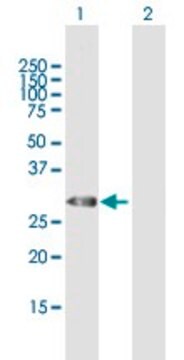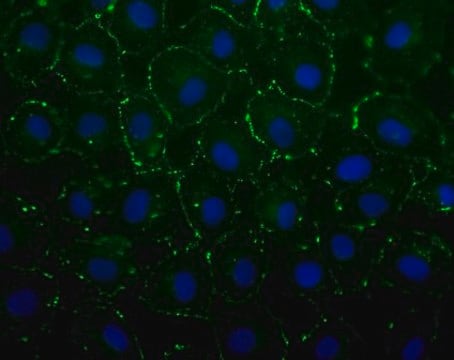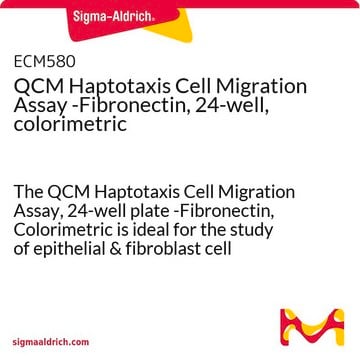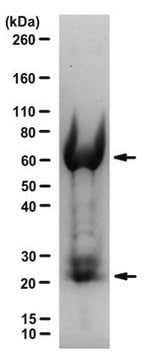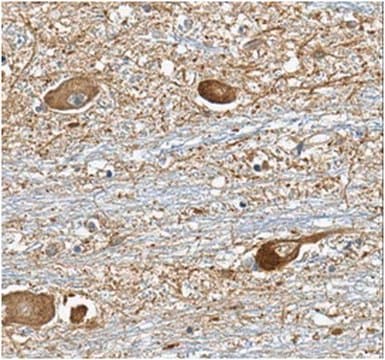ABN1658
Anti-pro-TRH
serum, from rabbit
Sinónimos:
anti-thyrotropin-releasing hormone, anti-Ps4
About This Item
Productos recomendados
biological source
rabbit
Quality Level
antibody form
serum
antibody product type
primary antibodies
clone
polyclonal
species reactivity
rat
species reactivity (predicted by homology)
mouse
technique(s)
immunofluorescence: suitable
western blot: suitable
NCBI accession no.
UniProt accession no.
shipped in
ambient
target post-translational modification
unmodified
Gene Information
rat ... Trh(25569)
General description
Specificity
Immunogen
Application
Immunofluorescence Analysis: A representative lot detected pro-TRH in rat brain stem & rat spinal cord tissues. (Wessendorf, M.W., et. al. (1990). J Histochem Cyotchem. 38(12):1859-77).
Neuroscience
Quality
Western Blotting Analysis: A 1:500 dilution of this antibody detected pro-TRH in 10 µg of rat hypothalamus tissue lysate.
Target description
Physical form
Storage and Stability
Handling Recommendations: Upon receipt and prior to removing the cap, centrifuge the vial and gently mix the solution. Aliquot into microcentrifuge tubes and store at -20°C. Avoid repeated freeze/thaw cycles, which may damage IgG and affect product performance.
Other Notes
Disclaimer
¿No encuentra el producto adecuado?
Pruebe nuestro Herramienta de selección de productos.
Storage Class
12 - Non Combustible Liquids
wgk_germany
WGK 1
Certificados de análisis (COA)
Busque Certificados de análisis (COA) introduciendo el número de lote del producto. Los números de lote se encuentran en la etiqueta del producto después de las palabras «Lot» o «Batch»
¿Ya tiene este producto?
Encuentre la documentación para los productos que ha comprado recientemente en la Biblioteca de documentos.
Nuestro equipo de científicos tiene experiencia en todas las áreas de investigación: Ciencias de la vida, Ciencia de los materiales, Síntesis química, Cromatografía, Analítica y muchas otras.
Póngase en contacto con el Servicio técnico